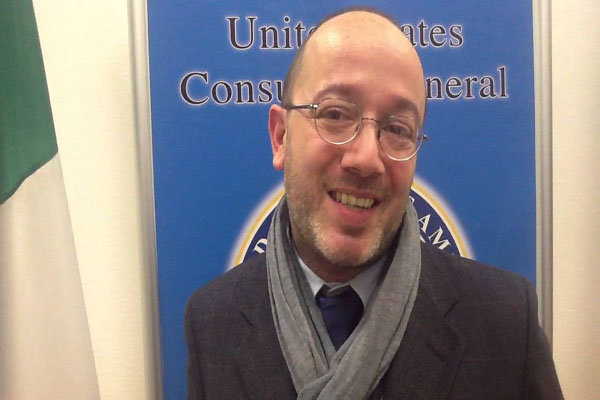While President Trump has certified Iran's compliance with the Joint Comprehensive Plan of Action (JCPOA) twice under a law that requires it to notify Congress of Iran's compliance every 90 days, there are some reports on possible planning by his administration to decertify Iran's compliance with JCPOA at the end of the current 90 day period.
The US ambassador to the United Nations, Nikki Haley, said before leaving to Vienna that The United States wants to know if the United Nations atomic watchdog plans to inspect Iranian military sites to verify Tehran's compliance with a 2015 nuclear deal, a request which is in contrast to the letter of the JCPOA. Haley met with International Atomic Energy Agency (IAEA) officials in Vienna for what she described as a fact-finding mission, which is part of President Donald Trump's review of the deal Iran made with world powers to curb its nuclear program in return for the lifting of sanctions.
Some analysts believe the recent actions by the US administration demonstrate that President Donald Trump plans to find pretexts to decertify Iran's compliance with the JCPOA which Trump calling it "the worst deal ever" during his election campaign vowed to rip it up.
To shed light on recent reports and speculations, Payman Yazdani from Mehr News agency discussed the issue with political science associated professor of Milan Catholic University of the Sacred Heart, Dr. Pastori Gianluca.
Here is the full text of the interview:
How do you evaluate Nikki Haley's visit to IAEA?
The current US administration cannot risk appearing too soft on Iran. This is the main reason why she is taking a strong stance on the JCPOA. However, inspecting Iran’s compliance to the provisions of the JCPOA is one of IAEA’s duties and Iran’s accountability is a key aspect of the deal. From this point of view, the US request is legitimate, as well as legitimate is the request to know the results of the previous missions.
Will the US new policy pave the way for it to withdraw from the JCPOA?
I do not think that the US will ever leave the deal. Breaking the agreement will put them in a difficult position. The European countries are increasingly active in Iran, while Iran and Russia share many common interests. China is keeping a lower profile, but its relations with Iran are traditionally good. Moreover, a US-Iranian crisis could negatively affect US-Russia relations: a centrepiece in Trump’s political agenda. This is why I believe that sticking to the JCPOA is the best way – for the US – to pursue their regional interests.
Haley said she travelled to Vienna to ask questions, not to push the IAEA to do anything. According to the US influence on the IAEA, is it possible for the agency to make more restriction on Iran?
The UN system is neither under total US control nor a mere tool of US influence; the same is true for IAEA. The Agency has some 170 members from all around the world, and some of them sport positions quite different from the US. For many reasons, the US are currently in favour of a tighter application of the deal, but we must not forget that their will is balanced by the will of the other Agency members.
UN Secretary-General Antonio Guterres believes that Iran nuclear deal is one of the most important diplomatic achievements for peace and stability and everyone involved needs to do its utmost to protect and support that agreement, so how is it possible for the US not to protect Iran nuclear deal?
I do not think that President Trump really aims at disrupting the JCPOA. He is trying to portray its position as stronger than the position of President Obama but this is due in part to domestic needs. President Trump also needs to take into account the will of the Congress, where anti-JCPOA factions are strong. Maybe, President Trump is trying to obtain what he believes better conditions in the implementation of the agreement, i.e. conditions that he deems more suited to the US interest. However, I still think that, overall, US interest pushes the administration to stick to the JCPOA.
If the US withdraws from the nuclear deal, will the other parties to the deal stop implementing it, too? If your answer is "no", then what will be the consequences for the US?
Some key figures of the current administration have repeatedly affirmed that the current deal, despite its limits, is better than no deal at all. Thus – again – I think that they will stick to the JCPOA. In any case, we must remember the US are the centrepiece of the ‘nuclear deal’. If they withdraw, the JCPOA will probably survive, but its political relevance will be greatly reduced. I do not think that a US withdrawal will really affect the system of the US-Europe relations. The US and the European country have often had different positions on Iran but this fact has never really endangered their mutual relationship.
Interview by Payman Yazdani

























Your Comment